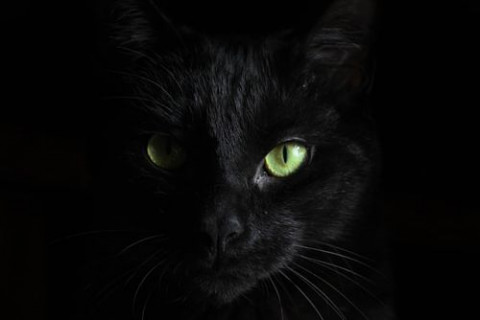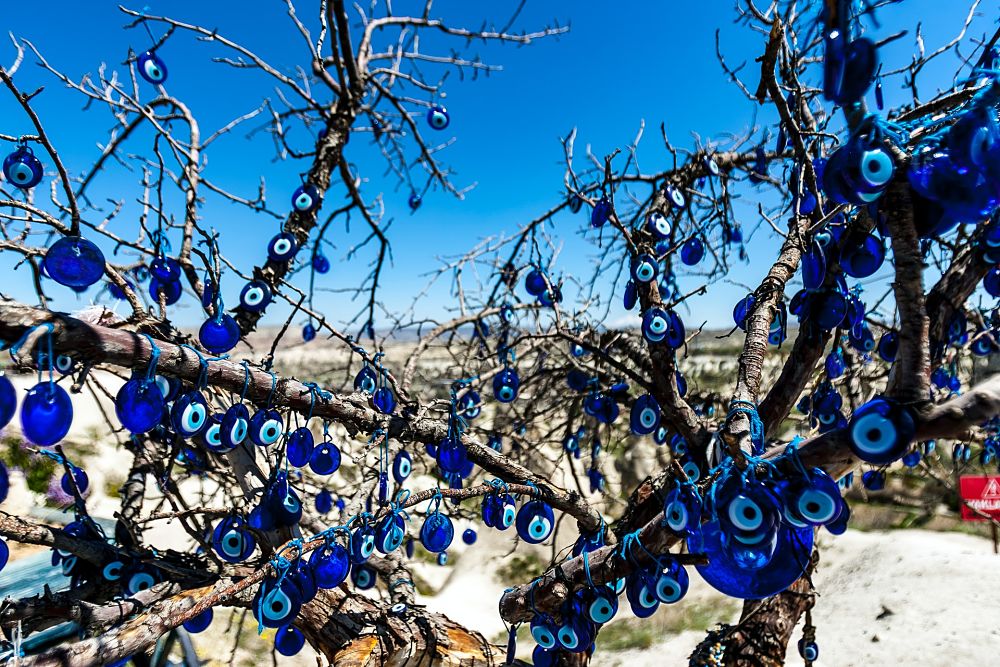Fighting Witchcraft in Saudi Arabia
For many Western cultures, witches are an innocuous subject.
Long gone are the days where innocent women were dragged from their homes to be burned at the stake.
Instead, witches now take on a far more innocent form; usually in the shape of a six-year old scouting for sweets during Halloween celebrations.
Harry Potter and related wizardry characters have long been a part of popular culture, with many a child having a wand of some sort stashed away in their toy cupboard.
However...
Witches are real...in some cultures
For many non-Western cultures, however, witchcraft has not acquired the same innocent connotations and is something to fear.
Saudi Arabia, as an example, has a taskforce, falling within the remit of the Committee for the Promotion of Virtue and the Prevention of Vice which is dedicated to the prevention of witchcraft (and associated activities such as fortune telling) within the Kingdom.

So significant is the threat of witchcraft, that they recently ran a certified training programme, attended by 27 people, entitled ‘The Development of Scientific Skills in the Fight Against Witchcraft’ (read more).
The training was intended to help attendees recognise the signs of witchcraft and to deal appropriately with any threats.
Anyone accused of witchcraft or associated crimes is liable to be executed in Saudi Arabia.
Executions for these deeds can, and do, happen. Witchcraft is, therefore, not very funny.
Although it might be easy in Western cultures to laugh this off as preposterous, the subject is very real for many in Saudi Arabia and elsewhere in the world.
Let’s have a look at why this might be the case in Saudi Arabia.
Fatalism, Religion and Belief in the other worldly
Many cultures in the Middle East, and indeed within Africa and Asia, are what we call ‘Fatalistic’.
Fatalism is a belief that everything that happens in the world and in people’s lives is predetermined and preordained.
Fatalistic cultures typically have a belief in all things spiritual. As such, these cultures tend to place a value on religion.
People within fatalistic cultures typically believe that events are not entirely within their control and that outcomes are liable to be driven by outside forces.
These forces vary considerable depending on the culture but within Saudi Arabia and the rest of the Muslim world, these forces include God, Jinn and Shaytan.
The Jinn
Islamically it is believed that Jinn are another species living in parallel to human beings, imbued with the ability to take on both human and non-human form.
In Islamic traditions, the Prophet Muhammad was sent to guide both the human and the Jinn communities. Like humans, they are both good and bad. They can also be Muslim or non-Muslim.
Zawba‘a - the Jinn demon King of Friday. From Kitab al-Bulhan. Original held by the Bodleian Libraries. Other names for this king of the jinns include Abu Hasan Zoba'ah and al-Abyad, according to R. Lebling (2010) "Legends of the Fire Spirits" (Image source)
The Jinn who choose not to follow Islam are typically considered part of the army of the devil. If bad, then Jinn can inflict harm by, for example, carrying out malicious acts or even taking possession of human bodies, animals or objects within the home.
Why are the Jinn important within the framework of witchcraft? Because witches are considered able to communicate with the Jinn at will and to contract them to carry out bad or malicious deeds on their behalf.
Verse 15:26-27 of the Quran reads:
“Indeed We created man from dried clay of black smooth mud. And We created the Jinn before that from the smokeless flame of fire”
Shaytan - The Devil
Shaytan (or Shayateen in the plural) are the generally considered the spiritual enemy by Muslims.
The Shayateen includes people or Jinn who might mislead people away from the path of righteousness by whispering ill intent in their hearts. Individuals given to witchcraft would most certainly be considered Shayateen.
The Evil Eye is often used to protect against dark forces in Islam. Photo by Hulki Okan Tabak on Unsplash
Verse 114:1-6 f the Quran, reads:
“Say: I seek refuge in the Lord of mankind, The King of mankind, The God of mankind; from the evil of the whispering insidious who whispers in the hearts of people whether from the unseen (jinn) or from the man.”
This fatalistic approach and the strong religious sense of witchcraft, Jinn and Shayateen demonstrate how and why, Witchcraft is a source of concern in Saudi Arabia.
Blaming Unseen Forces
The potentially malevolent activities of witches, Jinn and the Shayateen are considered significant and life changing.
As examples, a woman who struggles to conceive may blame this on a hostile aunt or an acquaintance evoking magic; unrest in a relationship may be due to a witch ‘blowing on knots’ and causing hatred; somebody exhibiting mental health like illnesses may have become possessed by Jinn upon the orders of witch.
Cultural differences around Witches
Even within Muslim dominant cultures, the degree to which individuals view witchcraft as a threat differs dramatically according to many factors including culture.
For example, research carried out by the Pew Research Centre shows that whilst 92% of people questioned in Tanzania see witchcraft as ‘real’, only 15% see it as real in Ethiopia.
Most Western cultures tend towards being far less fatalistic and are instead, more likely to be materialistic. Although there are lots of in between stages, Western cultures are more likely to believe that they have control over the events and outcomes around them.
With this belief in control then fear over entities such as witches are reduced; hence the possible surprise shown by many when they learn that Saudi Arabia has an anti-Witchcraft taskforce!
Working in or with Saudi Arabia?
Then go check out our market-leading online Saudi cultural awareness course! It's full of useful cultural insights that will help you avoid mistakes and make a great impression!
Photo by Hannah Troupe on Unsplash
Related Posts
By accepting you will be accessing a service provided by a third-party external to https://www.commisceo-global.com/

 +44 0330 027 0207 or +1 (818) 532-6908
+44 0330 027 0207 or +1 (818) 532-6908


